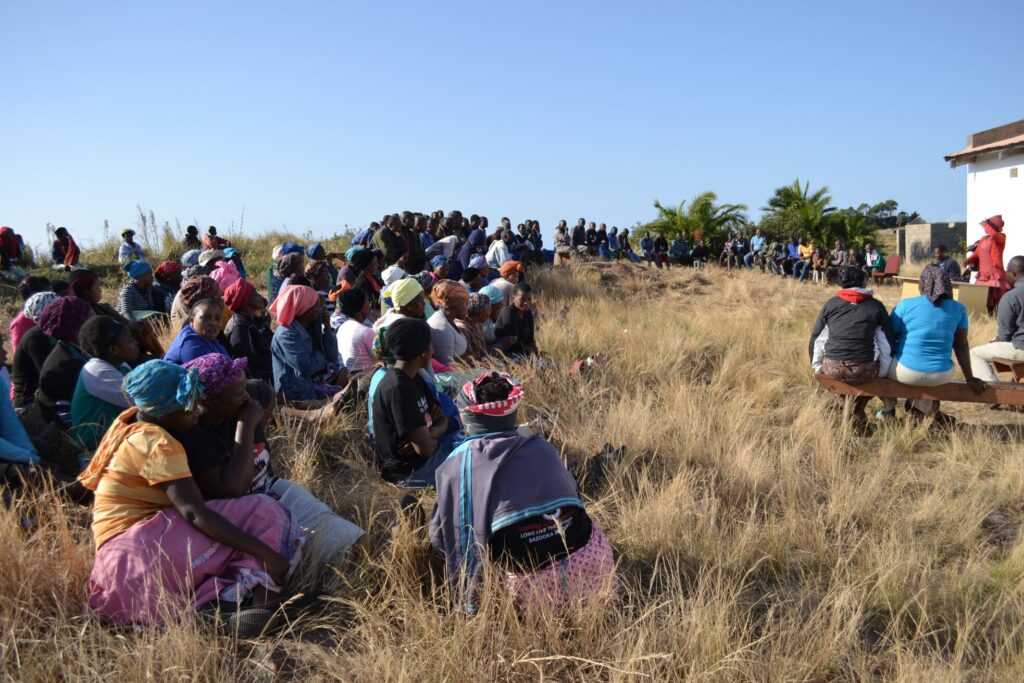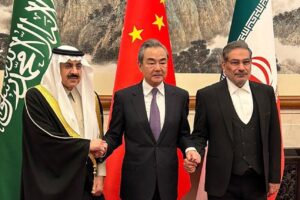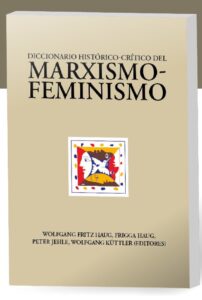By Andrew Bennie and Sinegugu Zukulu
As Pablo Solón (2018) has shown, emancipatory discourses like the Rights of Mother Earth are often constituted by different streams of thought and action. One of those critical streams is indigenous knowledge. In this piece, we suggest that indigenous ecology and the knowledge and social relations associated with it offer important contents and principles for an emancipatory perspective, which is crucial to developing the social thrust for a deep just transition.
Indigenous ecologies and concepts have been positioned by some as needing to be incorporated into existing development models (Sillitoe 2006), while others see them as alternatives to the notion and practice of development altogether (Acosta and Abarca 2018; Briggs and Sharp 2004). But in the South African context, where indigenous people suffered vast dispossession through colonial development, what is the relevance of indigenous ecology for an emancipatory just transition? We briefly examine here the Amadiba community struggle against proposed mining as well as oil and gas exploration of the Wild Coast in the Eastern Cape Province. Our aim is to show that key components of this struggle are cosmovisions, practices, and knowledge systems that reflect more sustainable and transformative socio-ecological possibilities than are imagined in currently prevalent ecomodernist and carbon-nationalist approaches from above. Drawing lessons from this experience, we argue, remains relevant to the wider struggle for a deep just transition.
Indigenous knowledge generally refers to knowledge, practices, innovations, institutions and values that have been developed by indigenous people over time (Mistry 2009). Such knowledge – widely recognised as having played a crucial role in the protection of biodiversity and ecosystems, and in the protection of indigenous peoples’ territories – is situated and place-based. In other words, it emerges through and defines indigenous people’s ecological relations with their territories and its manifold elements. The role of indigenous knowledge and ecology in confronting the planetary crisis has, in fact, entered the mainstream through its incorporation into development and sustainability discourses. However, given the capitalist causes and global scale of the ecological crisis, which mainstream discourses do not adequately address, more far-reaching and transformative conceptions and practices are called for.
In that regard, the defence, maintenance, and advancement of the commons emerge as cornerstones of reproducing and elevating the transformative thrust of indigenous ecology within a deep just transition framework. The commons can be defined through ideological and institutional parameters, but decisive to its historical endurance and transformative force is the practice of commoning, that is, the ways that communities of people in situated contexts evolved these practices through collective interactions, and as various groups of people continue to do so in the struggle to secure social reproduction amidst capitalism’s tendencies to undermine the socio-ecological bases for such. Federici and Caffentzis (2019) identified the key elements of the commons: they constitute an autonomous space (in relation to the state and capital); they are defined by the existence of shared property in the form of systems of knowledge, land, water, forests and systems of care (especially equal access to the means of social reproduction); as such, the commons are social relations rather than things (for example, not just the land itself, but the social relations that define equal access to it); and so the commons function on the basis of established rules that regulate their use and purpose; commons are, furthermore, constituted by relations of reciprocity and responsibility for the reproduction of the shared wealth; finally, commons are democratically managed through activities and spaces of direct democracy.
The Amadiba community is situated on the north-eastern reaches of biodiverse and ecologically important Wild Coast, in Mpondoland. For almost twenty years, its members have been resisting attempts by an Australian mining company and their local Black Economic Empowerment (BEE) shareholders (with enthusiastic state backing) to mine titanium-related products from the coastal sand dunes in their territory. Indigenous ecology and defence of the commons have been fundamental underpinnings of the struggle. The Amadiba coastal communities can be considered indigenous insofar as they were not historically dispossessed of their land during colonialism and apartheid, as a result of geographical isolation and organised resistance to such attempts, such as in the Pondo Revolt of 1960-61. As a result, customary rule was not distorted from above, but has provided the traditions, framework, and regulations for the governance and reproduction of the commons, including through practices of direct democracy. As such, key tenets of indigenous ecology, and the centrality of the commons to it, have been retained and reproduced. They have also formed the wellspring for resistance to attempts at accumulation from above, and help inform aspirations and paths to the future grounded in common benefits, democracy, and ecological wellbeing.

Indigenous ecology in the Amadiba case therefore contains important principles and insights necessary for a deep just transition towards the ideal of democratic eco-socialism. Partly because participation in the wider capitalist economy has been insufficient to secure households’ reproduction, land-based livelihoods have retained their centrality in Amadiba. This means that residents have an acute awareness of the importance of healthy ecosystems, because this is the basis of their own lives and of the life around them. This is a first important principle of indigenous ecology emerging from the Amadiba example: an explicit and daily consciousness of the ecosystems we are reproduced in. The local ecosystem is also central to the constitution of social relations in Amadiba. Indigenous forests are essential for the supply of material for shelter, medicinal plants, and a source of clean water, but they are also critical for spiritual needs: items from specific tree species are used in cultural and religious ceremonies. Maintaining these social relations through ecological relations requires the reproduction of knowledge about how it is done. All this amounts to the fact that the Amadiba see themselves as situated within, and held by the land. The land is a living environment that sustains, and is in turn sustained, by people and culture. Knowledge, practice, spirituality, and daily social life are, therefore, inseparably weaved together into an indigenous ecology.
These embedded ecological relationships form an integral part of Amadiba identity. It has therefore formed a key basis for the struggle against extractivism, and for forms of ‘development’ that are guided by indigenous ecology. The latter continues to exist, however, because of the active reproduction of the commons. Undistorted customary rule has provided the framework for the continued democratic management of land access, and structures daily social relations. Systems of knowledge form part of the shared wealth and are reproduced in daily interactions and practices. The defence of the commons and the maintenance of legitimate customary authority mean that the commons have remained autonomous from the dictates of the market and state. The commons are also managed and reproduced through direct democracy, in the form of traditional village-based processes and weekly traditional authority meetings that are open to the direct participation of all in discussing collective matters.
A further crucial feature in the commons here is the role of gender. Without romanticising gender relations in Amadiba, women experience greater equality in relation to land and community spaces than many other rural areas, because of local customary rule’s insulation from colonial distortion, and women’s agency. Women have been central to organising the struggle to protect the commons, the basis of socio-ecological reproduction, by advancing land-based alternatives through agriculture, and by driving the organised resistance to the proposed mining.
Indigenous ecology is place-based, and so its content and relevance are shaped contextually through the history it emerges from. As Federici and Caffentzis explain, “History is our collective memory, our extended body connecting us to a vast expanse of struggles that give meaning and power to our political practice” (2019, 85). Incorporating a historical perspective also means that we should avoid romanticising indigenous knowledge. It is not something that simply represents historical continuity, but which has been equally shaped through the dynamics of colonialism, dispossession, proletarianisation, and capitalism. Indigenous ecology has provided an important reason, means and axis of defence and resistance against colonialism and post-apartheid capitalist imposition from above, but it bears also the imprint of these processes. Thus, in Amadiba indigenous knowledge is something to be actively renewed, built, and constituted, through deliberate processes of reconstruction. For example, growing consumer aspirations are evident especially among the youth, linked to varied visions of development, jobs, and income. The role of indigenous ecology in this situation is not defined by a pre-given continuity, but by an active enrolment into both the struggle against mining and for development alternatives. It is an iterative process involving a number of differently placed actors. In other words, indigenous ecology is shaped through struggle.
The implication for the wider South African context where indigenous practices and knowledges have also been altered or depleted by the scale of historical dispossession is that its active growth and elaboration must be carried out in relation to the problems in the everyday lives of working people. Not as an abstract ideal, but through the recovery and articulation of fragments of indigenous knowledge that exist, together with other forms of knowledge. This can only happen concretely and from below, in conjunction with the patient yet urgent assembly of social forces. The constitution of indigenous ecologies and associated commons for a project of eco-socialism, thus, has to be a situated, democratic and feminist process. It must, in fact, involve some degree of open-endedness: an unfolding within democratically elaborated principles, values, and criteria.
The content of HKWM-Blog publications is the responsibility of its authors and of InkriT e.V. and does not necessarily reflect the position of the Rosa Luxemburg Foundation.
Andrew Bennie completed a PhD in Sociology, on food politics, the agrarian question, and collective action in South Africa, and is a food and climate justice activist. He is currently Senior Researcher in Climate Policy and Food Systems at the Institute for Economic Justice (IEJ) in South Africa. He also sits on the board of Sustaining the Wild Coast (SWC), an organisation that acts in solidarity with the Amadiba communities’ aspirations and activities for self-determination.
Sinegugu Zukulu was born and grew up in Mpondoland Wild Coast and is passionate about indigenous knowledge systems, history, and ecology. For his dedication to the protection of the Wild Coast he has won various national and international conservation awards. He has a Masters of Philosophy in Environmental Management. He previously worked as the Programme Manager for Sustaining the Wild Coast, and is currently a board member.
Bibliography
A. Acosta, and M.M. Abarca, “Buen Vivir: An alternative perspective from the peoples of the global south to the crisis of capitalist modernity”, in: V. Satgar (ed.) The Climate Crisis: South African and Global Democratic Eco-Socialist Alternatives. Johannesburg 2018, 131-149.
J. Briggs and J. Sharp, “Indigenous knowledges and development: a postcolonial caution”, Third World Quarterly, 25:4 (2004), 661-676.
S. Federici and G. Caffentzis, “Commons against and beyond capitalism”, in: S. Federici, Re-enchanting the World: Feminism and the Politics of the Commons. Oakland 2019, 85-98.
J. Mistry, “Indigenous knowledges”, in: R. Kitchen and J. Thrift (eds.), International Encyclopedia of Human Geography. Amsterdam 2019, 371-376.
P. Sillitoe, “Introduction: Indigenous knowledge in development”, Anthropology in Development 13: 3 (2004), 1-12.
P. Solón, “The Rights of Mother Earth”, in: V. Satgar (ed.), The Climate Crisis: South African and Global Democratic Eco-Socialist Alternatives. Johannesburg 2018, 107-130.




